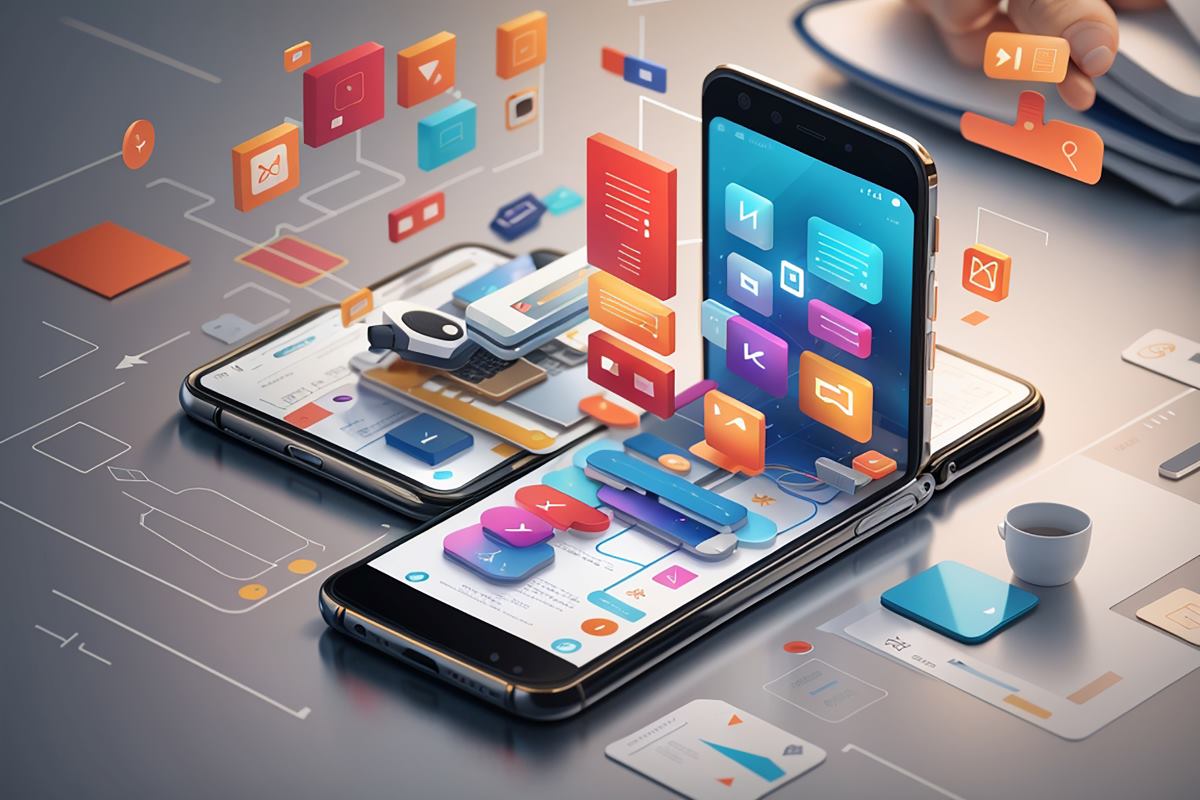Mobile Software
The landscape of mobile software is constantly evolving, driven by technological advancements and changing user expectations. This blog explores the future trends and innovations that will shape the world of mobile software, providing insights for developers, businesses, and users alike.
5G Technology and Its Impact on Mobile Software
The rollout of 5G technology promises to revolutionize mobile software. With faster internet speeds and lower latency, 5G will enable more responsive and immersive mobile experiences, supporting advancements in augmented reality (AR), virtual reality (VR), and the Internet of Things (IoT).
Artificial Intelligence and Machine Learning
Artificial Intelligence (AI) and Machine Learning (ML) are set to play a significant role in the future of mobile software. These technologies will enhance personalization, improve user engagement, and enable advanced features such as predictive analytics, voice recognition, and real-time language translation.
Augmented Reality (AR) and Virtual Reality (VR)
AR and VR technologies are becoming increasingly integral to mobile software. These immersive technologies will transform industries such as gaming, education, retail, and real estate by providing users with interactive and engaging experiences.
Increased Focus on Security and Privacy
As cyber threats continue to evolve, there will be an increased focus on security and privacy in mobile software. Developers will need to implement robust security measures, such as encryption, multi-factor authentication, and secure APIs, to protect user data and maintain trust.
Progressive Web Apps (PWAs)
Progressive Web Apps (PWAs) are poised to become a popular choice for mobile software development. PWAs offer the best of both web and native apps, providing fast, reliable, and offline-capable experiences that can be accessed directly through web browsers without the need for installation.
Integration with Internet of Things (IoT)
The integration of IoT with mobile software will open up new possibilities for smart devices and applications. Mobile apps will serve as central hubs for controlling and monitoring IoT devices, enhancing convenience and connectivity in various aspects of daily life, from smart homes to healthcare.
Cloud-Based Mobile Apps
Cloud technology will continue to transform mobile software by enabling apps to store data and perform complex tasks without relying on device storage and processing power. Cloud-based apps offer scalability, security, and seamless integration with other cloud services, enhancing user experiences.
Enhanced User Experience (UX) Design
The future of mobile software will see a greater emphasis on enhanced user experience (UX) design. Developers will focus on creating intuitive, accessible, and visually appealing interfaces that provide seamless interactions and meet the diverse needs of users across different devices and platforms.
Conclusion
In conclusion, the future of mobile software is bright, with continuous advancements in technology driving innovation and improving user experiences. By staying informed about these trends and adapting to new developments, developers and businesses can create cutting-edge mobile applications that meet the evolving demands of the market.
FAQ
- How will 5G technology impact mobile software?
5G technology will enable faster internet speeds and lower latency, allowing for more responsive and immersive mobile experiences. - What role will AI and ML play in the future of mobile software?
AI and ML will enhance personalization, improve user engagement, and enable advanced features such as predictive analytics and voice recognition. - How will AR and VR technologies transform mobile software?
AR and VR will provide immersive and interactive experiences, transforming industries such as gaming, education, and retail. - What security measures will be important for future mobile software?
Important security measures will include encryption, multi-factor authentication, and secure APIs to protect user data and maintain trust. - What are Progressive Web Apps (PWAs)?
PWAs are web applications that offer fast, reliable, and offline-capable experiences, combining the best of web and native apps. - How will IoT integration enhance mobile software?
IoT integration will allow mobile apps to control and monitor smart devices, enhancing convenience and connectivity in various aspects of daily life. - What are the benefits of cloud-based mobile apps?
Cloud-based mobile apps offer scalability, security, and seamless integration with other cloud services, improving user experiences. - Why is enhanced UX design important for future mobile software?
Enhanced UX design focuses on creating intuitive, accessible, and visually appealing interfaces that provide seamless interactions for users. - What industries will benefit most from AR and VR technologies?
Industries such as gaming, education, retail, and real estate will benefit most from the immersive experiences provided by AR and VR. - How can developers stay informed about mobile software trends?
Developers can stay informed by following industry news, attending conferences, and participating in professional communities and forums.



